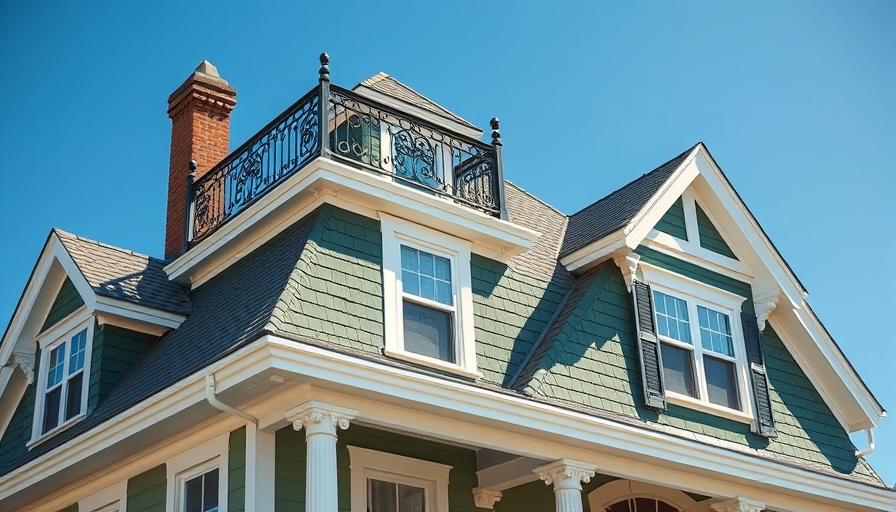
The Allure of Widow's Walks: A Coastal Icon
If you've ever found yourself driving along the picturesque coastline of Cape Cod or any quaint seaside town, you may have noticed distinctive structures adorning the rooftops of elegant homes: widow's walks. These railed platforms are more than just visually appealing; they've woven themselves into the fabric of maritime history. Though often romanticized by tales of melancholy sailors' wives longing for their partners' return, widow's walks are rich in purpose and significance that reach far beyond this narrative.
Exploring the Historical Significance
Widow's walks, also known as "roof walks" or "captain's walks," have origins rooted in 19th-century architectural trends, particularly across the New England coastline. These structures were inspired by Italianate cupolas and often topped the homes of the wealthy, allowing homeowners to survey the horizon for incoming ships. While the romantic lore exists, the practical purpose remains: they provided essential chimney access. During a time when cooking and heating relied heavily on fireplaces, chimney maintenance was crucial. Homeowners could toss sand down their chimneys to extinguish rogue fires, demonstrating the utility of these elevated walkways.
Defining Features of Widow’s Walks
So, what exactly makes a widow's walk? Characterized by its open design and railings, these rooftop platforms offer panoramic views, turning the home into an observation deck for those fortunate enough to reside in coastal locations. Found in historic areas like Nantucket and Newport, these architectural features symbolize wealth and status intertwined with the maritime lifestyle. However, they aren't confined to just the Northeast; port cities such as Charleston, SC, and Savannah, GA also showcase these elegant structures, guided by America's deep maritime roots.
Modern Trends: Restoring Heritage With a Twist
While the construction of widow’s walks may not be the dominant trend today, there’s a resurgence in interest among homeowners looking to blend historical inspiration with modern luxury. New builds are increasingly incorporating widow's walks, but with contemporary twists—cleaner lines, glass railings, and direct access from living spaces. This fusion not only helps homeowners capture stunning water views but also preserves the iconic charm associated with these rooftop platforms.
Benefits and Challenges of Restoration
Restoring a widow's walk can significantly enhance curb appeal and provide unique outdoor living space atop a home. However, potential buyers should consider several factors before diving into such restoration projects. The cost of upkeep, accessibility issues, and local building codes may pose challenges. Furthermore, in some regions, strict regulations regarding historical accuracy could limit the construction or renovation options.
Conclusion: Reviving an Architectural Legend
The narrative surrounding widow's walks may often evoke images of solitude and longing, but these architectural gems offer more than mere aesthetics. They are embodiments of history, status, and practical function. As new generations embrace their charm and uniqueness, widow’s walks continue to enrich coastal homes, transforming rooftops into spaces of spectacular views and vibrant stories.
For anyone considering a coastal property or restoration project, understanding the significance and potential of a widow's walk can guide investment decisions and offer captivating aesthetics for years to come.
 Add Row
Add Row  Add
Add 




Write A Comment